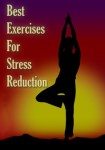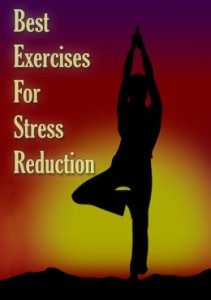Buddhism is not involved in a rivalry with any religion. It is a religion, as Roshi Philip Kapleau explained, only to the extent that we have to have faith that the practices lead to increasing wholesomeness.
That’s almost like saying doing push-ups is a religion. We have to have faith that our muscles will develop if we do the work. But no increased wholesomeness awaits those who persist in their push-up practice.
The Buddha also said that speculation was a waste of time.
Buddhism is a practice that develops mindfulness and results in liberation from the wheel of birth, death, and rebirth. Heavy stuff, but we really can’t ignore that aspect of Buddhism.
Some entrepreneurs travel the world, promoting Buddhism as a means for stress reduction, anger management, and other cool results. They make money holding seminars, selling a product.
But the Buddhism they preach is far from authentic Buddhism. People can practice yoga for stress reduction and anger management; they can take long walks in the sun to treat depression or excessive worry.
But the practice of Buddhism reaches places untouched by the mundane world. To demote it to just another stress or anger management program is a ludicrous waste of its teachings.
Buddhism is practiced by ordinary people of all religions and all cultures. People who lack faith in their religion or philosophy may fear it, but those who don’t do not.
Buddhism has no supreme God that sits in judgment on human beings.
Therefore, Buddhism has no sacred texts that are the word of a supreme God.
Buddhism recognizes that the Great Chain of Being does not end with us humans, i.e., the human dharma realm is not the highest dharma realm (it’s the fifth of ten according to the Mahayana school and fifth of thirty one according to the Theravada school!)
Buddhism has no gurus, no one to worship, no quarrel with science and nothing to fear from past or future scientific developments.
Buddhism respects the great teacher who was known as The Buddha, The Enlightened One, but does not worship him.
As we progress through the howtopracticezen course, we’ll understand what happened when Moses went up to the top of Mt. Sinai and conversed with a bush that was burning but not consumed by fire.
Every visitor to this website who practices the ten steps of the course with diligence will climb that same mountain and have the same conversation with the same burning bush.
A year from now, we won’t be the same person we are now. Of course, that will happen whether we take the howtopracticezen course or not! But the change will be for the better even if we just practice the first three steps of Beginning Zen and never get to koan practice.
If you’re a Catholic, a Protestant, a Mormon, a Jew, a Scientologist, an atheist, an agnostic, a contrarian, a Hindu, a Jain, a hater of all religions, or whatever, we invite you to take the course and develop the super power mindfulness taught by the Buddha.
But phooey on using Buddhism to become a better artist, a better athlete, or whatever.
To those who tour the world, selling mindfulness based stress reduction (MBSR) seminars, reducing Buddhism to just another self-help program, we offer three cheers, in Chinese:
Phooey! Phooey! Phooey!
OK, so phooey is not really a Chinese word, but it ought to be. And I like the joke.
Actually, I have met only one teacher of MBSR and he is a great guy who is very sincere and doing a lot of good work (far more work in the field of Buddhism than I have ever done). So I hereby acknowledge that the above Chinese version of the hip-hip-hooray cheer doesn’t apply to all MBSR teachers.
And in penance I offer this link to his website. www.bemindful.org.
But we practice Buddhism for one reason only: To wake up for the benefit of all sentient beings, not to attain the personal, sakkaya ditthi side effects of lower blood pressure and all that mundane stuff the MBSR programs offer.
To reduce stress, we can practice yoga as suggested by the photo for this blog post. Or practice Tai Chi or take long walks or…but please let’s not sit in zazen so that we can reduce stress. That places Buddhism in a very small box. Stress reduction is a very minor side effect of zazen and that trivial effect should not be exalted as if that is what Buddhist practice is for.

